It was perhaps the greatest show of political activism among American scientists in a generation.
By Francie Diep
Activists rally on Capitol Hill during the March for Science on April 22nd, 2017, in Washington, D.C. (Photo: Brendan Smialowski/AFP/Getty Images)
Thousands gathered in the rain in Washington, D.C., today to march in support of science and against various new federal policies set to undermine research funding, environmental protections, and the fight to stop man-made climate change. “We’re nerds! We’re wet! We’re really, really upset!” protestors chanted near the end.
In the works since late January, the March for Science was set to coincide with Earth Day, and with similar protests in more than 600 cities around the world, according to planners. The March for Science was perhaps one of the greatest shows of political activism among American scientists in a generation: After the 1960s, American researchers generally retreated from the public sphere, according to several historians of science. Since the inauguration of President Donald Trump, however, many have returned to the political arena, or else are entering it for the first time. They’ve been motivated by the White House’s moves to reverse the Obama administration’s climate change-mitigating actions, and to cut funding from science-based agencies, such as the Environmental Protection Agency and the National Institutes of Health. “The unease about what’s happening in the government is drawing a larger response, among scientists and among friends of science, to stand up for science,” Rush Holt, president of the American Association for the Advancement of Science, told Pacific Standard in an interview on February 9th. On February 23rd, the association declared its support for the March for Science.
Pacific Standard attended the main event in Washington and interviewed marchers for snapshots of the day.
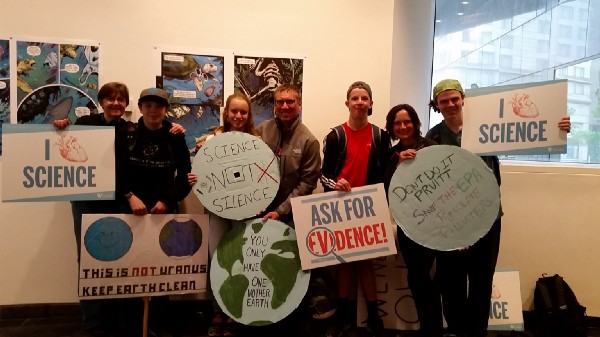
(Photo: Francie Diep/Pacific Standard)
Three Families March for Science
Three families are represented among this group from Salem, New York. They said they liked how the march coincided with Earth Day’s environmental concerns.
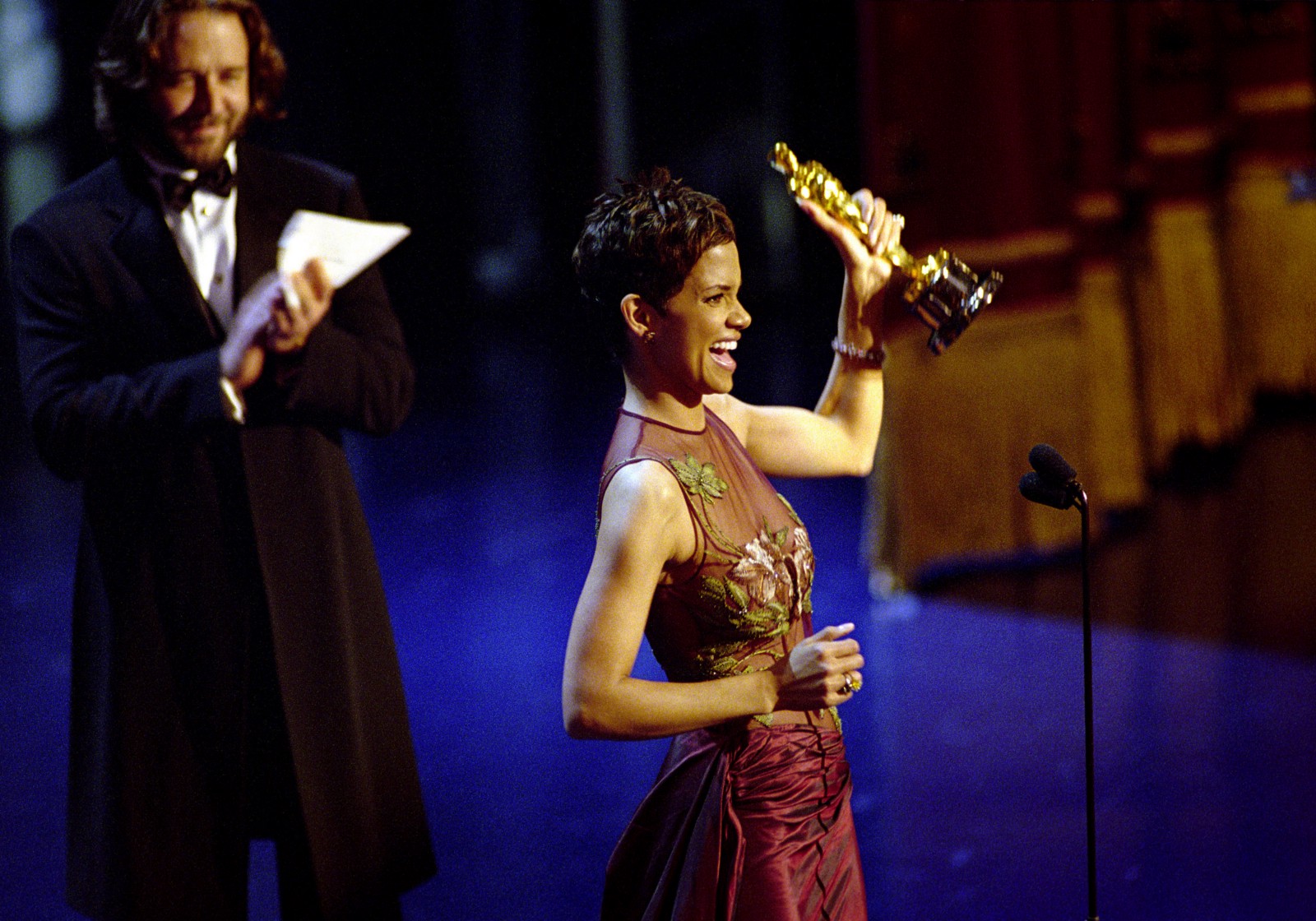
(Photo: Francie Diep/Pacific Standard)
Abraham Lincoln Comes Back From the Dead, Runs Into an Old Friend
Alex Moseson, on the left, and Samir Doshi, on the right, both took part in the American Association for the Advancement of Science’s Science and Technology Policy Fellowship at the same time, but now live in different cities: Moseson works as an engineer in the Indiana state government, while Doshi is an engineer in the D.C., area. They ran into each other just as Pacific Standard began chatting with Moseson. Doshi started laughing upon seeing Moseson’s outfit.
“I never expected to have to defend science or the notion of truth,” Moseson later said. But, he felt, the current situation was dire. “This administration has led the dialogue to questioning facts.”
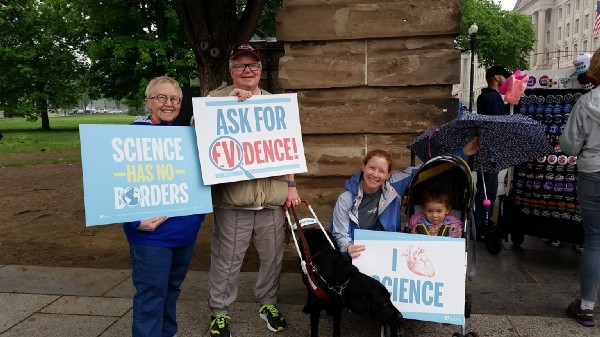
(Photo: Francie Diep/Pacific Standard)
Several Generations of Science Supporters
Mary Kay Watson and Debbie Wygal, on the left, came from St. Paul, Minnesota, to march, while Katie Watson — with two-and-a-half-year-old Rio Julio Watson, on the right — lives in nearby Baltimore. “I’m here because I feel like we live in a world that’s anti-science,” says Wygal, a retired biology professor. “It really upsets me when I hear somebody like our president say, ‘I don’t believe in climate change.’ There’s no belief system in science.”
Plus, Katie joked, “Rio is an aspiring chemist.”
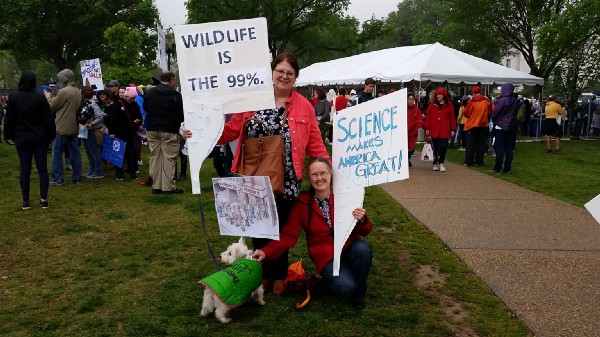
(Photo: Francie Diep/Pacific Standard)
An Experienced Protestor and Her Dog
This is not the first time Mary Walworth, on the left, has protested. (Pacific Standard forgot to ask whether it was the first time for Maggie, whose vest reads, “FACTS NOT DOGMA.”) A speech pathologist, Walworth started attending political marches in the run-up to the Iraq War, which began in 2003. She and Elizabeth Laurano, on the right, both also attended the Women’s March on Washington in January. “I’m here because I’m terrified by what will happen if we ignore the scientific facts about climate change,” Walworth says.
Coming Out of Retirement for Science
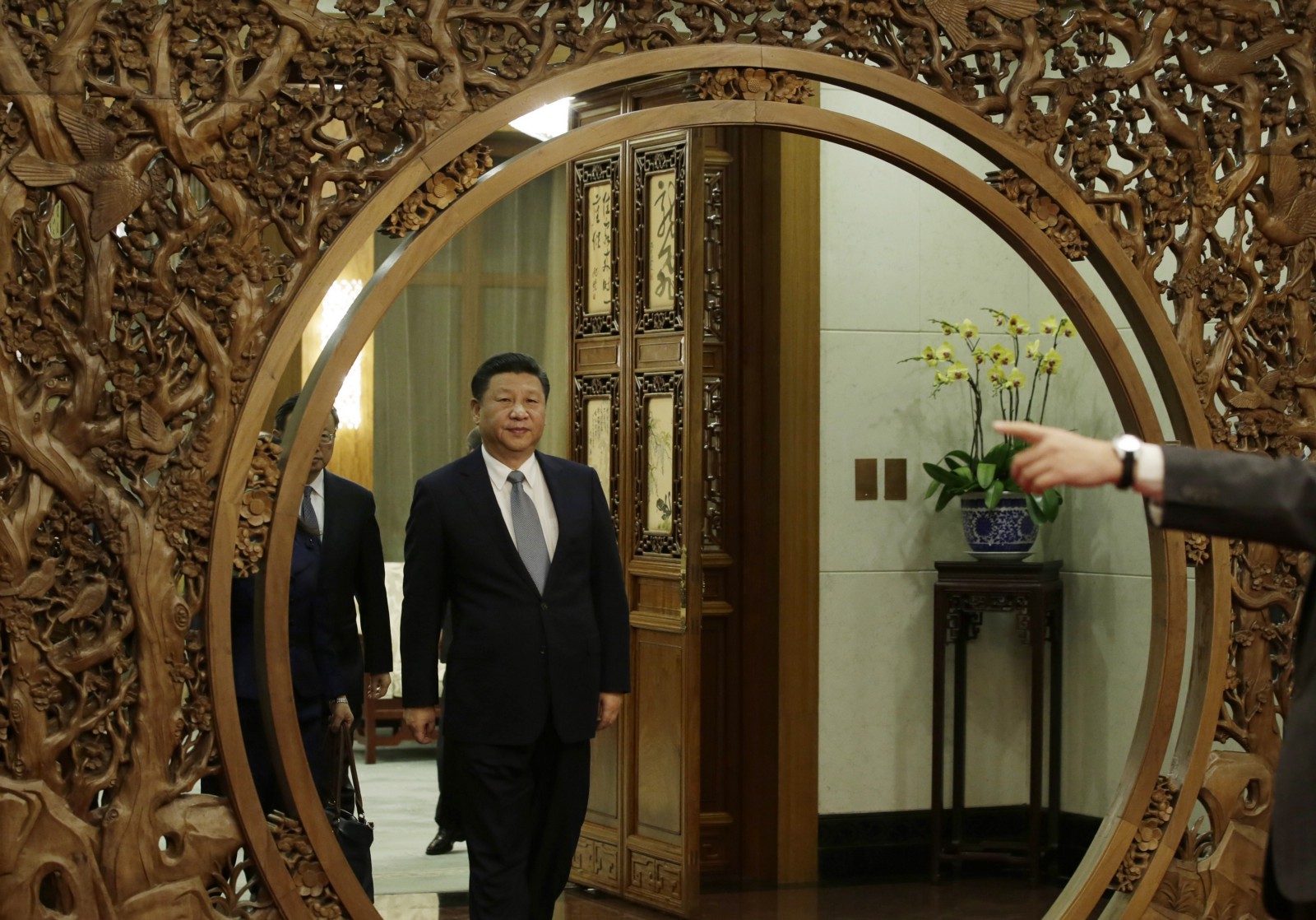
(Photo: Francie Diep/Pacific Standard)
Ledolph Baer retired from the National Oceanographic and Atmospheric Administration in 1995. “That’s how old I am,” he says. He says he has never been politically active before, but was pricked to march this time because of “our government’s lack of interest in science.”
“You mean the government’s utter disregard for science? The government’s denial of science?” a companion adds.
“I don’t expect this president to be a scientist, but I do expect him to listen to the people that are available,” Baer continues. “I want the government to start paying attention to what the real scientific world is saying.”

(Photo: Francie Diep/Pacific Standard)
“We Enjoyed It Immensely”
Matt, Amelia, Ethan, Sara, and Cierra (left to right) are all students at the University of Mary Washington in Virginia, where they study computer science (Matt and Ethan), psychology (Amelia and Sara), and creative writing (Cierra). “We went to the Women’s March and we enjoyed it immensely and we were like, ‘Science would also be a good cause to march for,’” Sara says. The group mentioned a few policies they thought especially important, including a ban on the pesticide chlorpyrifos, which the EPA recently decided to keep on the market; more funding for science; and more funding for the Public Broadcasting Service, which they say is crucial for getting children interested in science. The students’ sign refers to a popular multiplayer online game that was shuttered by its maker.
One Family for Many Causes
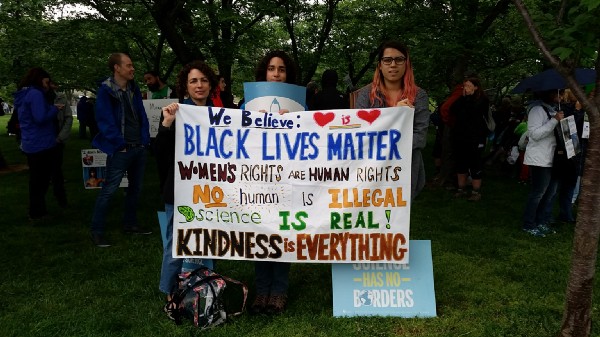
(Photo: Francie Diep/Pacific Standard)
Amanda Lopez and her children, of Amherst, Massachusetts, already had this sign prepared—they also carried it when they attended the Women’s March.
Lopez says she has joined the March on Science because she’s worried about the funding cuts the Trump administration has proposed. “I believe that science is fundamental to the world, to their future,” she says, gesturing to her children.





